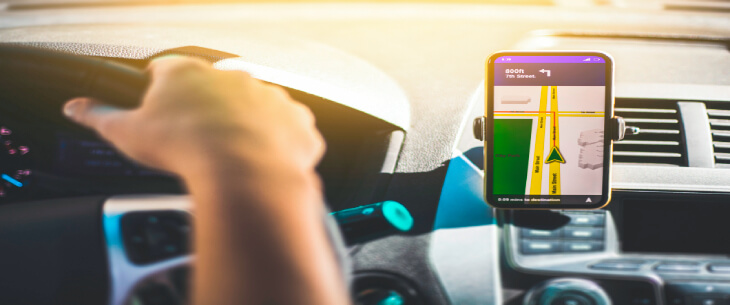Lyft is a ridesharing app that, along with Uber, has come to dominate the market in Philadelphia and throughout Pennsylvania. As commuters look for new ways to get from one point to another, they have increasingly relied upon Lyft. But as Lyft’s popularity soars, more users will get into an accident and suffer serious injuries.
Accidents involving Lyft drivers and passengers present different challenges than other automobile accidents. If you or a loved one have been hurt, you need a law firm that has experience handling rideshare accidents. Cooper Schall & Levy represents Lyft riders and drivers, and we can help you get compensation for your injuries.
What Is Lyft?
Lyft is a ridesharing app that, similarly to Uber, connects passengers needing a ride with available drivers. Users download the Lyft app onto their smartphones and create an account. When they need a ride, they activate the app and put in a request for drivers in their vicinity. The driver who accepts will then go and pick up the passenger and drive them to their destination. The app provides users with other information such as the current location of the driver and the estimated time of arrival.
Lyft Versus Other Modes Of Transportation
One difference between Lyft and more traditional means of public transportation is that it’s an on-demand service. Instead of having to wait for a bus, a train, or a taxi, the Lyft user can request a ride whenever he or she wants. Compared to Lyft, which can pick up passengers anywhere the service is provided, traditional public transportation modes have more set transit paths. These features in particular have contributed to Lyft’s popularity.
Another distinction is that while operators of buses, trains, and taxis are trained to do their jobs, Lyft drivers are not. In fact, Lyft drivers are just for-hire private operators with no special training or unique skills. While unique regulations exist which govern public transportation entities, there are only minimal qualifications to drive for Lyft. It is true that the state of Pennsylvania imposes insurance requirements and inspection rules for drivers, but these do little to guarantee a safer ride.
Because Lyft drivers are simply private citizens, the company does not consider them to be employees. Instead, they view their drivers as independent contractors and do their best to distance themselves from accidents. This makes it difficult, although not impossible, to hold the company liable.
Common Lyft Accident Injuries
Lyft drivers can get into wrecks just as anyone else, regardless of whether it is their fault. Your driver may be distracted, overworked, tired, intoxicated, or under the influence of drugs. Or, a third party driver may be impaired in these ways. Either way, a Lyft vehicle can get into a serious or even fatal accident, with passengers suffering injuries such as:
- Whiplash
- Herniated discs
- Neck, back, and spinal injuries
- Concussions and skull fractures
- Traumatic brain injuries
- Bone fractures
- Amputations
- Muscle strains
- Internal bleeding and organ damage
- Paralysis and disability
Serious accidents may be irreversible and require a lifetime of rehabilitation, physical therapy, and intensive treatment. If you’ve been involved in a Lyft accident, even if you believe your injuries are minor, get medical attention. Failure to see a doctor could jeopardize your ability to get compensation later if your injuries start to materialize or worsen.
Does Lyft Offer Insurance?
Responding to legislative and public pressure, Lyft has taken the step of offering liability insurance which applies in certain limited cases. However, the coverage rules are complicated, and there’s no guarantee the insurance will provide adequate payment for your losses. The eligible coverage depends generally on when the accident happened:
When driver mode is off. In other words, when Lyft is not being used and the driver gets into an accident. The driver’s personal liability insurance is in force.
When driver mode is on, but no ride has been accepted. If the driver’s personal liability insurance does not apply (and it usually doesn’t for commercial endeavors like for-hire ridesharing), Lyft offers the following coverage:
- $50,000 maximum limit per person
- $100,000 maximum limit per accident
- $25,000 maximum limit for property damage (for the driver’s vehicle)
When a ride has been accepted through the duration of the trip. If an accident happens from the time a ride is accepted and during the entirety of the trip, Lyft offers the following coverage:
- $1,000,000 for bodily injury per accident
- $1,000,000 for property damage per accident
- $1,000,000 for uninsured/underinsured coverage, where the at-fault driver has no insurance or has inadequate insurance to cover your losses
If the driver already has insurance, Lyft’s policy will continue to be excess to that policy.
How Can A Lyft Accident Attorney Help Me?
Despite Lyft’s liability coverage, insurance companies are known to deny and underpay legitimate claims. If a third party driver is responsible for your accident, you may be caught in the middle of a fight between that person’s insurance and Lyft’s carrier. No matter who ends up paying, there’s a good chance your reasonable losses won’t be covered.
Don’t trust the insurance companies to do the right thing. Instead, talk to the experienced Lyft accident attorneys of Cooper Schall & Levy. We understand Pennsylvania automobile accident law and we know how to determine the true value of your case. Not only is your case worth the current medical losses and lost wages you are suffering, but you deserve compensation for future damages as well. These could include future treatments, future lost wages, and future lost earning capacity.
Contact Our Philadelphia Lyft Accident Attorney
If you or loved one have been injured during a Lyft ride, turn to our dedicated team. We will negotiate a fair amount for your damages and will take your case to court if necessary. Call Cooper Schall & Levy today to schedule your consultation.
Cooper Schall & Levy personal injury lawyers serve Philadelphia, Pennsylvania as well as neighboring counties such as Montgomery County and Delaware County and cover neighborhoods such as Norristown and Drexel Hill.


